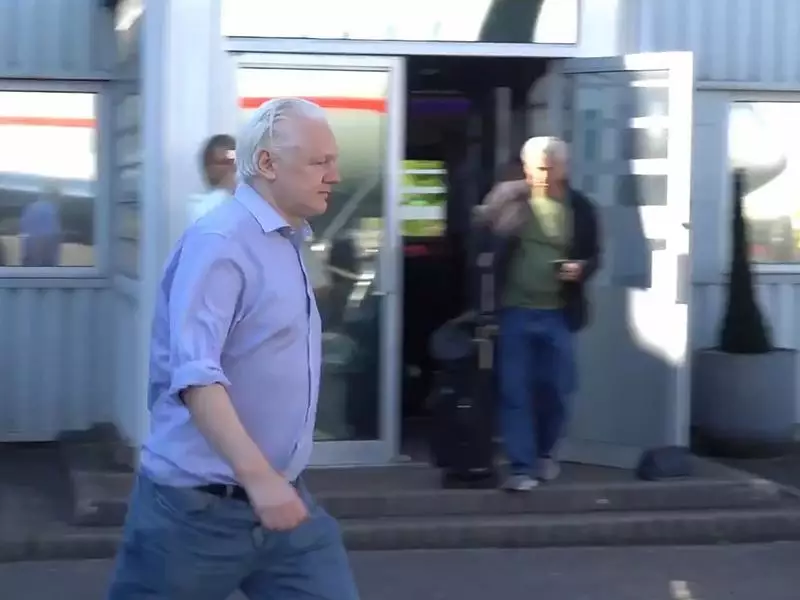Wikileaks founder Julian Assange will finally face a United States court 14 years after he leaked troves of secret state information and ended up in a British maximum security prison for his troubles.
An odyssey that started with Assange holed up in Ecuador’s London embassy before leading him to solitary confinement in Belmarsh prison in the United Kingdom, now looks set to end on a Pacific tropical paradise on Wednesday.
Assange agreed on Tuesday, to plead guilty to a single criminal count of conspiring to obtain and disclose classified U.S national defence documents, according to filings in the U.S District Court for the Northern Mariana Islands – a U.S territory in the Pacific.
By the end of the day he was on a plane flying to the islands via Thailand.
He will be sentenced for time served at 9am on Wednesday, Australian time, at a hearing in a courtroom about 200 metres from the blue waters of the Pacific in the territory’s capital Saipan.
An updated court document states that Assange has been summoned to the third floor of the District Court.
There is one count listed: conspiring to unlawfully obtain and disseminate classified information relating to the national defence of the United States, in violation of 18 USC, section 793(g).
Another court document states that U.S Justice Department officials “anticipate that the defendant will plead guilty to the charge.”
Once the proceedings are over, Wikileaks and his family say Assange will be free to return to Australia where he is likely to receive a mixed welcome.
For his supporters, it is a moment of jubilation.
“It’s a great victory for freedom of expression and also justice,” Greg Barns, the legal advisor to the Australian Assange Campaign, told AAP.
“Julian faced the prospect of over 170 years in a US jail if he’d been convicted of the charges for which the Americans were seeking to extradite him”
Former Australian high commissioner to the UK Alexander Downer, who served while Assange was seeking asylum in the Ecuadorian embassy in London, said he doubted Australians would have sympathy for him.
“What he did was a criminal offence, and it was a terrible thing to do, morally as well, and endangering people’s lives in that way,” he told the BBC.
Australia had long called for the US to end its pursuit of Mr Assange, who is 52 years old and faced spying charges.
Prime Minister Anthony Albanese had directly raised the issue with U.S President Joe Biden and politicians from across Australia’s political spectrum converged on Washington in September to lobby U.S decision-makers.
“Regardless of the views that people have about Assange’s activities, the case has dragged on for too long,” Albanese said.
Assange’s family expressed their relief at his release, with his father John Shipton praising the Australian government for its efforts to end the “persecution” of his son.
“I am absolutely elated – it is as though a huge burden has been lifted,” he told the PA new agency.
Assange’s mother, Christine Assange, said his release showed “the importance and power of quiet diplomacy”.
“Many have used my son’s situation to push their own agendas, so I am grateful to those unseen, hard-working people who put Julian’s welfare first,” she said.
“The past 14 years has obviously taken a toll on me as a mother.”
Assange’s wife Stella while there had been uncertainty about the situation leading up to Assange being released from prison, she was “elated” by the developments.
Assange’s brother Gabriel Shipton told Reuters that for “millions of people who have been advocating for Julian, it is almost time for them to have a drink and a celebration”.













